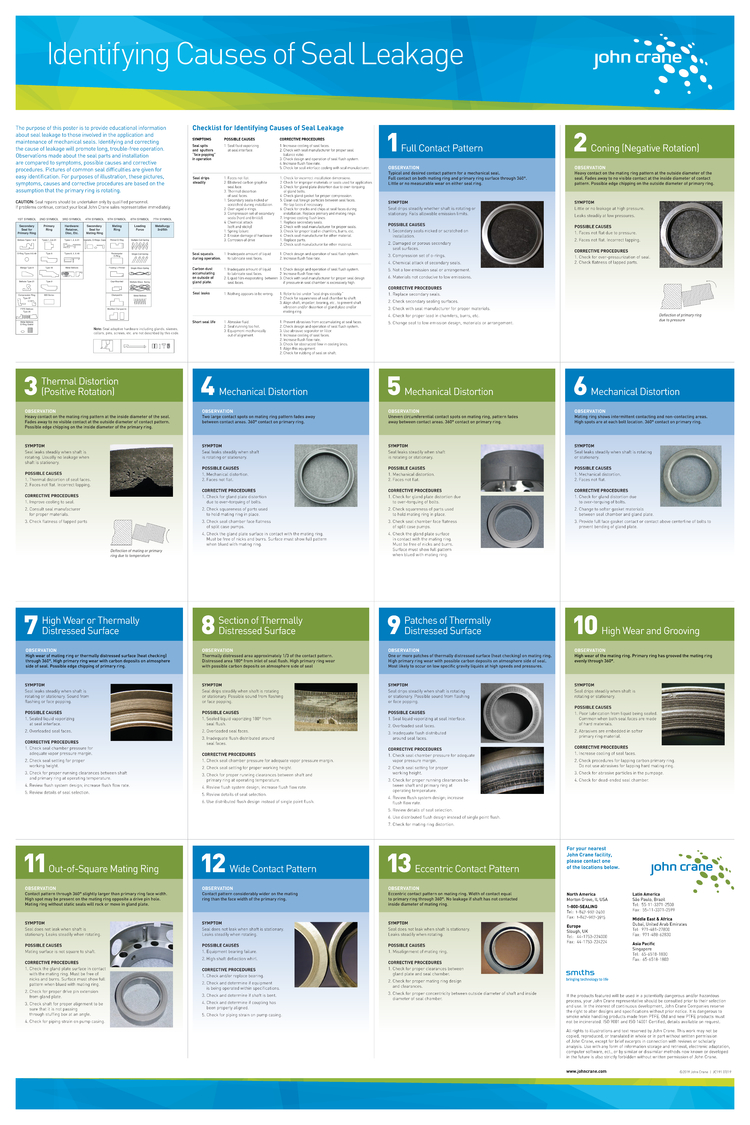August 4, 2019 | 1 minute read
Years ago, most pump shafts were sealed using rings of soft packing, compressed by a packing gland, but this type of shaft seal required a fair amount of leakage just to lubricate the packing and keep it cool. Then came the development of the mechanical seal, which accomplishes the job of restraining product leakage around the pump shaft with two very flat surfaces (one stationary and one rotating). Even though these mechanical seal faces also require some leakage across its faces, this leakage normally evaporates and is not noticeable.
However, because of the delicate components used for this new sealing method, mechanical seal failures are the greatest cause of pump down time. To avoid this, it's essential to apply the right seal for the desired and appropriate function.
A seal can be exposed to a wide variety of operating conditions—sometimes very different from conditions the seal was intended for—which can cause issues down the line. However, even if your seal is the right one for the job, there can be times when it fails faster than anticipated.
When this happens, it’s imperative that you act quickly to identify the cause of leakage. Every minute of downtime results in lost production and maintenance fees.
Click here or on the graphic below to view the 13 most common types of seal failure, including diagnostic symptoms, causes and corrective procedures.
